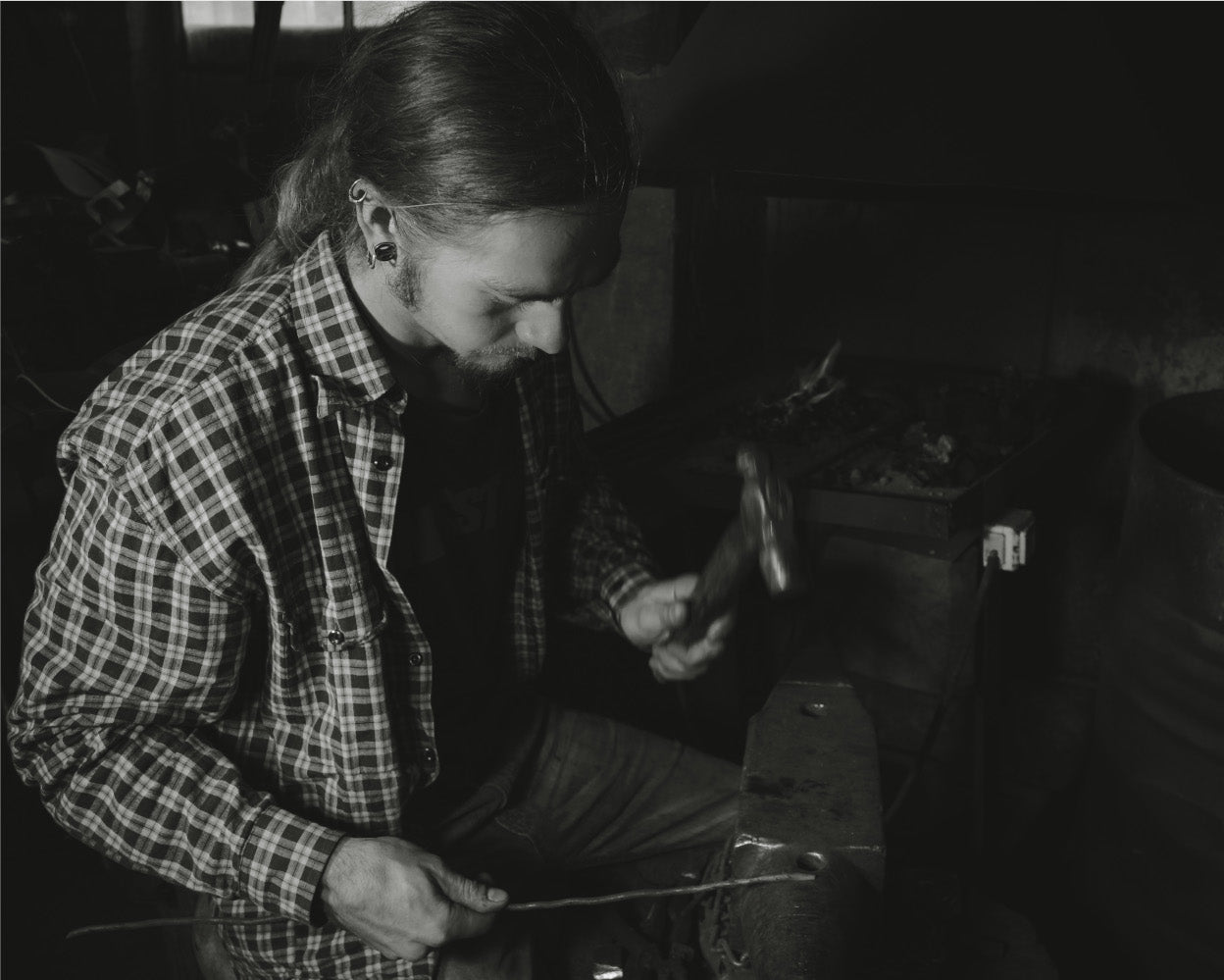Ever wondered which metals can take the cold forged heat? We're diving into that right here. In this blog article, we're going to talk about which metals are up for the cold forging challenge. So, stick with us to learn about the metals that don't mind cold-forged transformation.
What is Forging?
First, let’s understand what forging is. Forging is a manufacturing process that involves shaping metal using localized compressive forces. Typically, forging is performed at elevated temperatures to make the metal more malleable and easier to shape. This process is known as hot forging.
What is Cold Forging?
Some metals can be forged at lower temperatures, a process referred to as "cold forging." Cold forging is a method of shaping metal through pressure, all at ordinary room temperatures. Unlike hot forging, which relies on high temperatures to make metals pliable, cold forging achieves similar results without the need for extreme heat.
Cold forging is generally limited to certain metals that have good ductility and can undergo plastic deformation at room temperature or slightly elevated temperatures. Some metals that can be cold forged include:
- Aluminum
- Copper
- Brass
- Mild Steel
- Stainless Steel
- Titanium
- Aluminum
Aluminum is a super flexible metal, which means it can change its shape without being torn or breaking apart. This lightweight metal does all sorts of cool things from making airplane parts to everyday stuff like cans and bike frames.
- Copper
For centuries, copper has been an artist's dream. Cold forging allows this metal's natural malleability to shine, enabling artisans to create intricate designs and functional pieces. Whether it's delicate jewelry or sturdy electrical connectors, copper gracefully takes on new forms under the skilled hands of cold forging.
- Brass
Brass is an alloy of copper and zinc. Just like its copper counterpart, brass handles cold forging well. Its unique blend of malleability and strength makes it perfect for crafting a wide range of objects, from musical instruments to decorative pieces.
- Mild Steel
Although it is called Mild Steel, in actuality this metal is capable of handling tough situations. Certain grades of mild steel can undergo cold forging due to their moderate ductility.
Cold forging showcases its adaptability, yielding strong and enduring components that are vital in various industries. From automotive parts to construction materials, cold-forged mild steel combines strength with versatility.
- Stainless Steel
Stainless steel, known for its durability and corrosion resistance, also thrives under the influence of cold forging. From sleek kitchen cutlery to heavy-duty industrial machinery, cold-forged stainless-steel products offer both resilience and elegance.
- Titanium
Titanium is a metal known for its exceptional strength-to-weight ratio. While the process is demanding, cold-forged titanium produces high-performance marvels that push the boundaries of what's possible. Crafting high-performance wonders that venture into space and beyond, cold-forged titanium is a true innovator.
Which Industries Use Cold Forging?
Here are some industries that use cold forging:
- Automotive Industry
- Mining
- Oil and petroleum
- Aerospace
- Hardware
- Appliance
- Construction
-
Automotive Industry:
Cars are more than just four wheels and an engine. Inside those sleek machines, cold forging gets to work crafting strong and reliable parts. From gears that shift seamlessly to axles that keep us rolling, the car industry relies on cold forging to ensure we're safe and sound on the road. - Mining
Deep underground, where mining equipment faces rugged conditions, cold forging steps in. like drill bits or conveyor chains. Cold forging shapes these rugged tools, making sure they stand up to the toughest mining challenges.
- Oil and petroleum
Oil and petroleum industries run on robust equipment. Valves, pumps, and fittings keep the flow going, and cold forging gives them the strength they need. To keep them running smoothly, even in the harshest environments.
- Aerospace
Cold forging crafts components that can handle the pressure. Landing gear parts and turbine blades owe their strength to this technique, making sure we can fly with confidence.
- Hardware
Cold forging is a crucial process in making bolts and nails, turning basic materials into strong and reliable components.
- Appliances
Your appliances work hard, and cold forging makes sure they're up for the task. Whether it's the gears in your washing machine or the valves in your stove, cold forging gives them the staying power to make your daily life easier.
- Construction Industry
In the construction industry, cold forging takes center stage. It's the ingenious process that molds and shapes sturdy beams and resilient rivets, serving as the unbreakable glue that holds entire structures together.
- Custom Knife Making
A lot of knife-making companies also use cold forging as a good and effective technique to make custom knives.
Is Cold Forging Cheaper Than Other Forging Methods?
The answer lies in the delicate balance of technique, material, and complexity. While the initial setup for cold forging might be heavy on your wallet, the method often leads to long-term savings due to efficient material usage and reduced energy requirements.
Conclusion
In conclusion, We've seen how metals like aluminum, copper, mild steel, stainless steel, and titanium come alive with a touch of cold forging. Whether it's crafting jewelry, building strong structures, or using it in aerospace, cold forging adds a touch of cool artistry to it all. So, the next time you admire a shiny piece of jewelry or marvel at the strength of a machine, you'll know that the cold forging has played its part.

